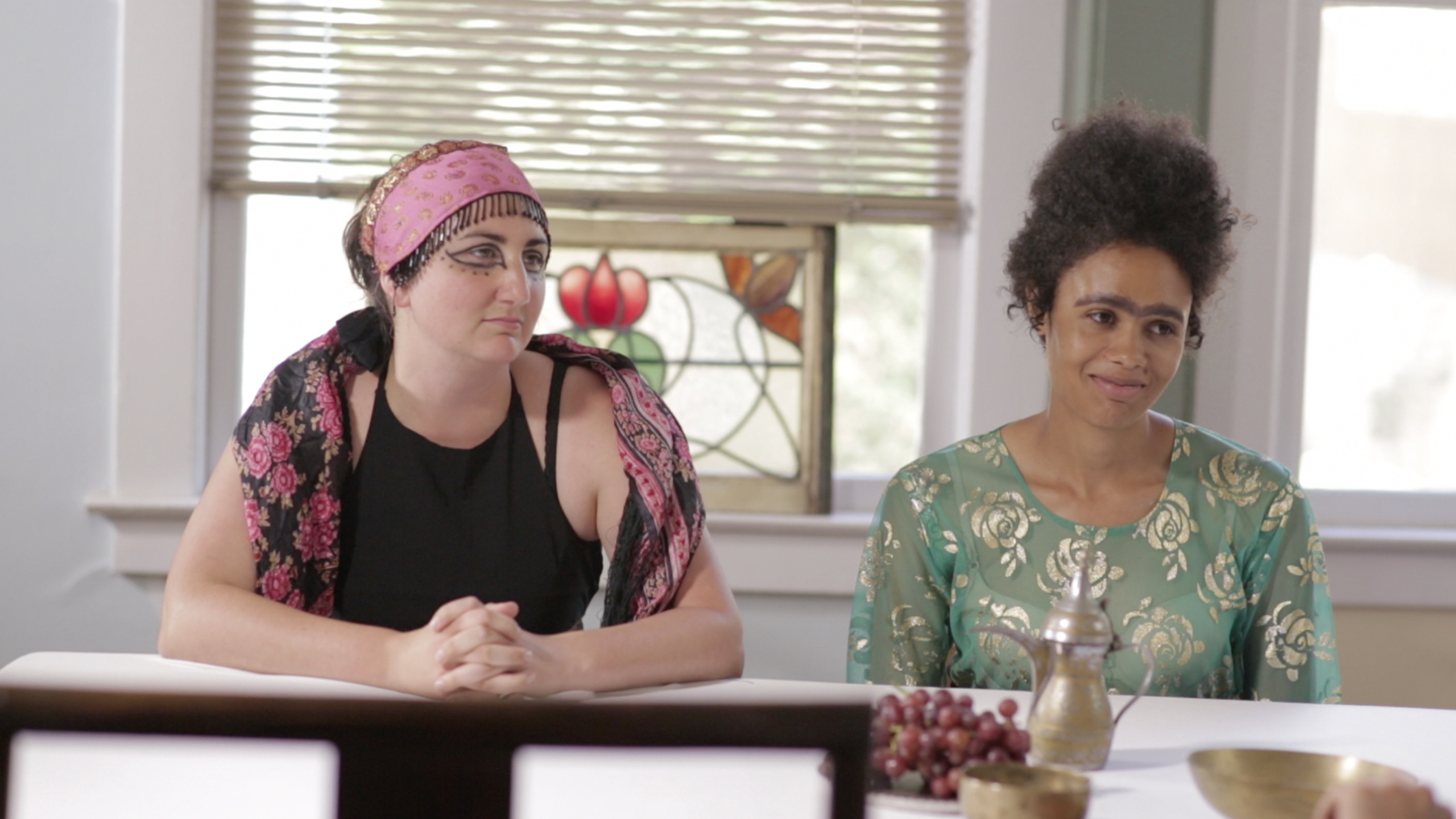Latest IDEAS Performance to Examine Contemporary Parallels in 'Epic of Gilgamesh'
San Diego, Calif., Aug. 20, 2014 — An ancient text considered to be the first great work of literature will get a modern treatment Thursday evening at the sixth performance in the Qualcomm Institute’s Initiative for Digital Exploration of Arts and Sciences (IDEAS) series.

The Qualcomm Institute (QI) Theater at the University of California, San Diego will be the venue for a 5 p.m. screening tomorrow of a video created by performance artist Elmira Mohebali, a graduate student in Visual Arts. In her work, titled “Epic of Gilgamesh -- A Tale of Love and Revenge,” Mohebali revisits the Mesopotamian poem, which dates to about 2,800 B.C. She examines the similarities the ancient text shares with contemporary society, especially its questionable approach toward gender and sexuality. The screening and talk are free and open to the public.
“While researching the text, I realized my identity as a female in this epic is dismissed in a way,” explains Mohebali, who moved to the United States from Iran in 2002. “There are a lot of similarities between the Babylonian version of the epic and in contemporary Iranian culture, which seems to have roots in these same ideas. The problems that I’ve always thought of as contemporary problems have roots that go back so long ago.”
A few of the issues addressed in her video (which will be excerpted at the performance) are the orientalist exoticization of the eastern female body in the postcolonial era, binary gender constructions and power struggles between these constructed genders. The year-long IDEAS series is designed to encourage all types of artists and technologists to take advantage of the advanced audio-visual facilities, services and personnel at QI.
“The original version of Gilgamesh (as documented in Sumerian tablets) is very matriarchal and respects all the goddesses,” says Mohebali, who studied several version of the epic after learning the ancient Akkadian language from UC San Diego History Professor William Propp. “It came to me as a shock that in the complete version, which belongs to the Babyloninan era, all the respect for the Goddess Ishtar is gone. The way the demigod king Gilgamesh talks to this goddess is very disrespectful, and all the reasoning behind her brutality is taken out. She seems very shrewish, when, according to my research of the epic, she had a good reason to act certain ways and was not merciless the way that Gilgamesh describes her.”
Mohebali explores some of these discrepancies in her video, which features performance artists acting out the roles of the gods as they deliberate over an important decision. Although Mohebali takes creative license with her “gods’ council,” the outcome of their decision mirrors that of the “Epic of Gilgamesh.”
Says Mohebali: “My video is not about narrating exactly the same story, but narrating what is missing from the story. As I researched the texts I suspected there was something wrong with the Western translation of original Epic. I discovered some alternative researchers of the text who write about how during this time, female-oriented religions were considered cults rather than religions, which made the research of the Epic very male dominated.
“Very few academics are addressing this problem,” she continues. “At some point when I felt comfortable that I understood what was happening and what was being excluded very dramatically in terms of what these gender roles are, I started to rewrite what is not told.”
Mohebali stresses that attendees of the performance need not be familiar with the Epic to understand the themes and questions that arise from her work.
“I’m assuming hopefully it will relate to anyone,” she adds. “It’s such a humane expression of what the goddess Ishtar is going through as she completely gives up her identity as a goddess because of her love for Gilgamesh. She wants to be who Gilgamesh wants her to be, rather than being herself. That’s not such a strange and unfamiliar decision for us women, and it raises the question of why we make that decision.”
Related Links
Media Contacts
Tiffany Fox, (858) 246-0353, tfox@ucsd.edu
